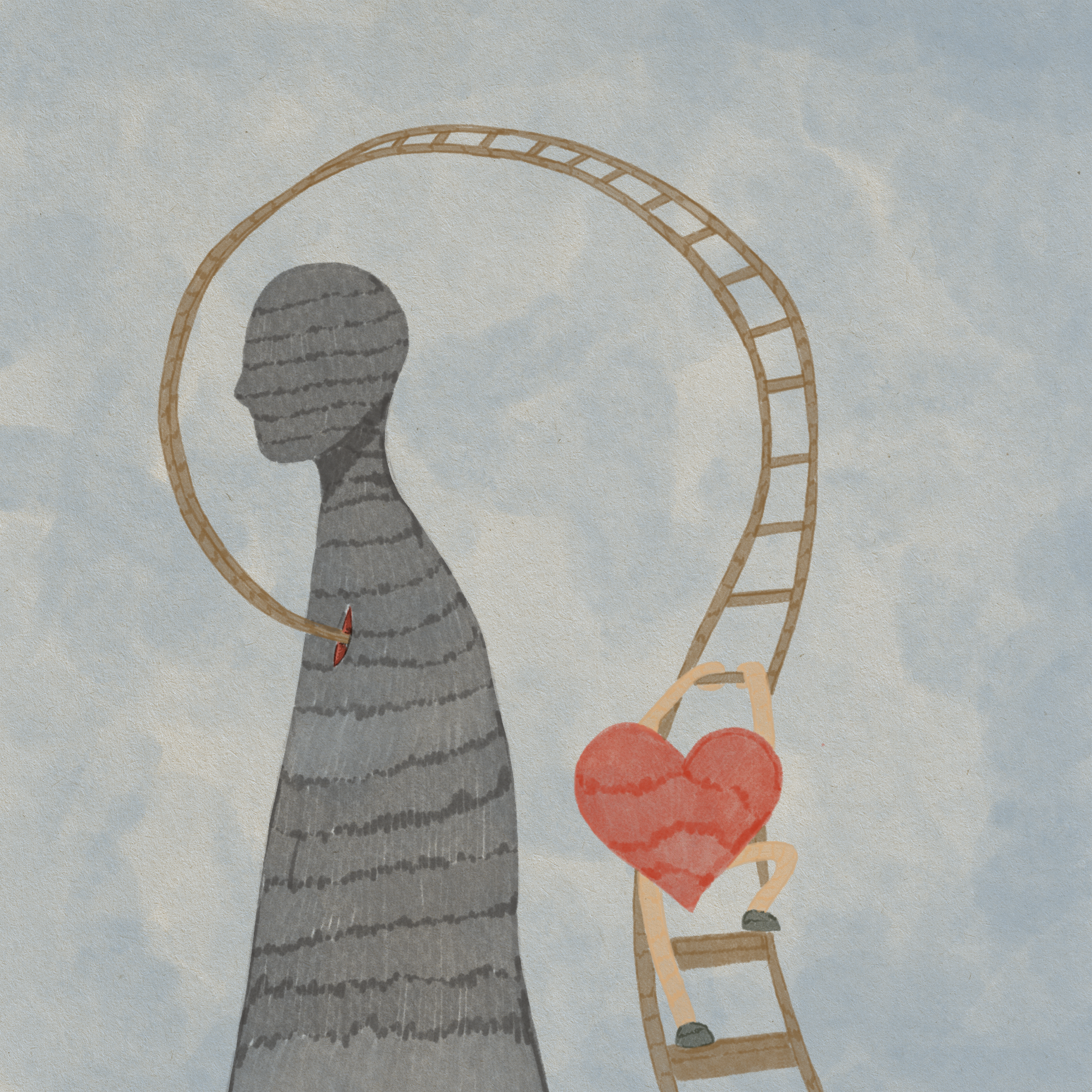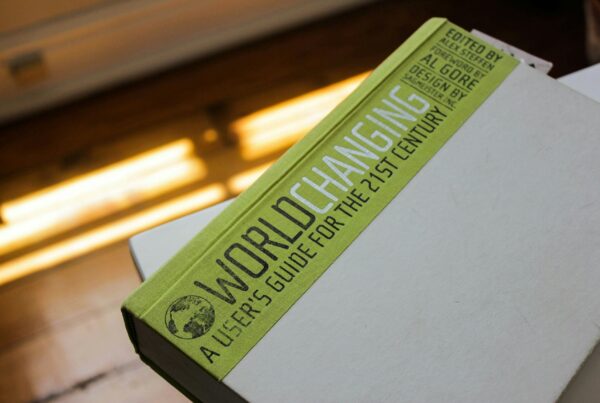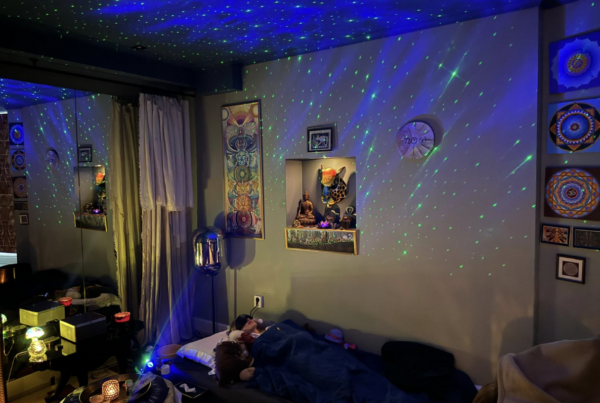
To our land and it is a prize of war,
the freedom to die from longing and burning
and our land, in its bloodied night,
is a jewel that glimmers for the far upon the far
and illuminates what is outside it…
as for us, inside,
we suffocate more!
Mahmoud Darwish (To Our Land)
Palestine’s National Poet
In this day and age, we are constantly bombarded with news of ongoing conflicts – bloodied streets, battlefields and brutal fatalities. The 21st century has seen multiple uprisings and wars unfold, with a total of 365 conflicts happening across the globe as recorded by HIIK (2023). As our world grows increasingly complex and troubled, it becomes difficult to keep track of the innumerable acts of barbarity, making us selective in what and who we choose to focus on. Exclusion leads us to disconnect from other victims of war and their suffering, as we restrict our empathy to specific groups. So, why are we so quick to understand the pain in one situation yet be so indifferent to the pain in another?
To our land and it is a prize of war,
the freedom to die from longing and burning
and our land, in its bloodied night,
is a jewel that glimmers for the far upon the far
and illuminates what is outside it…
as for us, inside,
we suffocate more!
Mahmoud Darwish (To Our Land)
Palestine’s National Poet
In this day and age, we are constantly bombarded with news of ongoing conflicts – bloodied streets, battlefields and brutal fatalities. The 21st century has seen multiple uprisings and wars unfold, with a total of 365 conflicts happening across the globe as recorded by HIIK (2023). As our world grows increasingly complex and troubled, it becomes difficult to keep track of the innumerable acts of barbarity, making us selective in what and who we choose to focus on. Exclusion leads us to disconnect from other victims of war and their suffering, as we restrict our empathy to specific groups. So, why are we so quick to understand the pain in one situation yet be so indifferent to the pain in another?

Illustration by Arianna Cavalli

Illustration by Arianna Cavalli
Disconnection from one group can be attributed to a variety of factors. A primary reason for it is media representation: the content we consume directly affects our perception of a situation (Şaran, 2016). The role of mass media is critical in determining the escalation of a conflict, that is, whether it proceeds in a constructive or destructive manner in real-life. Destructive conflict escalation occurs through media manipulation involving ‘information wars’, where it is customary for incomplete or biased information to be published (Şaran, 2016), leading to the formation of strong yet baseless public opinions. Furthermore, media manipulation leads to the polarization of the parties involved in the conflict: this is most commonly seen in news coverage of ethnic conflicts, where conflicting parties view each other as fundamentally different, which can be explained through an ethnocentric lens (Reuben, 2009). Ethnocentrism relates to social identity theory (SIT) by (Hogg, 2016), which explains the tendency to see individuals who are a part of your social group as superior whilst rejecting those who are not; respectively known as ingroup favouritism and outgroup derogation. For instance, the powerful technique of ethnocentric framing was found in Israeli-Palestinian news coverage: when deaths were caused by the outgroup (Israel), reports indicated high levels of emotionalism, personalisation and dramatisation whereas when deaths were caused by the ingroup (Palestine, or Hamas), reports justified them with lower levels of emotionalism and greater depersonalisation.
“Destructive conflict escalation occurs through media manipulation involving ‘information wars’, where it is customary for incomplete or biased information to be published, leading to the formation of strong yet baseless public opinions.”
In addition to local media representations, the role of third-party Western media should be carefully considered in the context of conflict escalation. The world of media is highly anglicised, with the majority of news channels presenting information from an anglo-Western standpoint (HACHTEN, 1993). This is often conflict-divisive, meaning it creates and heightens unfriendly disagreement between groups (Cambridge Dictionary, 2023). A topical example is the underrepresentation of Palestinian voices in Western media – often, these war victims are misrepresented or offered little time to highlight their suffering in comparison to the Israeli people (Zanuddin, 2018). Such negative framing results in the marginalisation of victims and furthers both polarisation and conflict escalation. Moreover, Western media is guilty of indulging in the ‘us’ vs ‘them’ mentality; as seen in their contrary viewpoints regarding refugees. Media outlets exhibited positive and sympathetic perspectives for Ukrainian refugees, ‘…so much like us,’ (hyperlinked) in reference to their light skin and blue eyes, whilst Middle Eastern refugees are considered ‘problematic’ and invasive (Afshar, 2022). As such, both local and Western media reinforce dehumanising beliefs about war victims on one side of the conflict.
Constant exposure to the media causes the human brain to be flooded with news of developing contexts and conflicts; we are simply not equipped to handle this. According to psychologist Paul Slovic, our capacity to empathise is not endless. The phenomenon of ‘psychic numbing’ may explain our apathetic reactions to mass atrocities: this term states that changes at a small level have a large impact, but with increasing magnitude, it takes a much larger difference for the impact to be noticeable (Resnick, 2017). This means that, as the number of people involved in a conflict increases, the less we care. While we do still care about individual stories and support them in their distress, this outpouring of support fades away as the scale of conflict rises. This is partially due to our inability to form an emotional connection with a large group of individuals and it is this lack of connection that leads to further dehumanisation of victims whose lives are being uprooted by ever-growing conflict (Resnick, 2017). Besides these internal reasons, there are external factors contributing to our apathetic reactions. For instance, the most popular shows and movies glorify violence and destruction causing us to distance ourselves from the concept of war (Mudumba, 2022). In this way, we treat war and conflict as a form of entertainment seen only on our television screens as opposed to seeing and realising its devastating impacts in real life. All in all, these forms of dehumanisation and desensitisation affect our perception towards war and add to the already complex issue of conflict.
“our capacity to empathise is not endless”
Although such issues are complex, individuals still differ in their reactions to others’ suffering as some provide aid while others live in ignorance. In the end, it all comes down to personal choice. One can choose to rely on immediate sources of information or seek out a more nuanced perspective. On the bright side, many people are capable of and willing to create positive change. Individuals across the globe have attended and organized protests in support of humanity, urging the end of war and human suffering. Besides protests, petitions and signed appeals to the government have also been a large part of such movements. Right here at the UvA , we have held student-led discussions and invited guest speakers to urge for action and peace. By appealing to our better nature as humans and creating more connected, positive forums online, it is possible to build empathy and recognition for the struggles of victims around the world. At the end of the day, wars tear down families and create martyrs: as humans, we should be more mindful and sympathetic towards those who have suffered, for they are just like us. <<
References
– Afshar, A. (2022, March 23). Sympathy for Ukraine Highlights Western Apathy Toward Other Conflicts. WhoWhatWhy. https://whowhatwhy.org/opinion/sympathy-for-ukraine-highlights-western-apathy-toward-other-conflicts/
– Cambridge Dictionary. (2023). divisive. Dictionary.cambridge.org. https://dictionary.cambridge.org/dictionary/english/divisive
– HACHTEN, W. (1993). THE TRIUMPH OF WESTERN NEWS COMMUNICATION. The Fletcher Forum of World Affairs, 17(1), 17–34. https://www.jstor.org/stable/45288823
– HIIK . (2023). Current Version – HIIK. Heidelberg Institute for International Conflict Research. https://hiik.de/conflict-barometer/current-version/?lang=en
– Hogg, M. A. (2016). Social Identity Theory. Peace Psychology Book Series, 3–17. https://doi.org/10.1007/978-3-319-29869-6_1
– Mudumba, R. (2022, April 21). Is The Apathy Of War, Entertainment? Change Your Mind Change Your Life. https://medium.com/change-your-mind/is-the-apathy-of-war-entertainment-b7ad1699a0b4
– Resnick, B. (2017, July 19). A psychologist explains the limits of human compassion. Vox; Vox. https://www.vox.com/explainers/2017/7/19/15925506/psychic-numbing-paul-slovic-apathy
– Şaran, V. (2016). MEDIA MANIPULATION AND PSYCHOLOGICAL WAR IN UKRAINE AND THE REPUBLIC OF MOLDOVA. CES Working Papers, 8(4), 738–752. https://www.ceeol.com/search/article-detail?id=603709
– Zanuddin, H. (2018). Media Framing Approach Of Israelis And Palestinian Conflict. The European Proceedings of Social & Behavioural Sciences. https://doi.org/10.15405/epsbs.2018.05.56
Disconnection from one group can be attributed to a variety of factors. A primary reason for it is media representation: the content we consume directly affects our perception of a situation (Şaran, 2016). The role of mass media is critical in determining the escalation of a conflict, that is, whether it proceeds in a constructive or destructive manner in real-life. Destructive conflict escalation occurs through media manipulation involving ‘information wars’, where it is customary for incomplete or biased information to be published (Şaran, 2016), leading to the formation of strong yet baseless public opinions. Furthermore, media manipulation leads to the polarization of the parties involved in the conflict: this is most commonly seen in news coverage of ethnic conflicts, where conflicting parties view each other as fundamentally different, which can be explained through an ethnocentric lens (Reuben, 2009). Ethnocentrism relates to social identity theory (SIT) by (Hogg, 2016), which explains the tendency to see individuals who are a part of your social group as superior whilst rejecting those who are not; respectively known as ingroup favouritism and outgroup derogation. For instance, the powerful technique of ethnocentric framing was found in Israeli-Palestinian news coverage: when deaths were caused by the outgroup (Israel), reports indicated high levels of emotionalism, personalisation and dramatisation whereas when deaths were caused by the ingroup (Palestine, or Hamas), reports justified them with lower levels of emotionalism and greater depersonalisation.
“Destructive conflict escalation occurs through media manipulation involving ‘information wars’, where it is customary for incomplete or biased information to be published, leading to the formation of strong yet baseless public opinions.”
In addition to local media representations, the role of third-party Western media should be carefully considered in the context of conflict escalation. The world of media is highly anglicised, with the majority of news channels presenting information from an anglo-Western standpoint (HACHTEN, 1993). This is often conflict-divisive, meaning it creates and heightens unfriendly disagreement between groups (Cambridge Dictionary, 2023). A topical example is the underrepresentation of Palestinian voices in Western media – often, these war victims are misrepresented or offered little time to highlight their suffering in comparison to the Israeli people (Zanuddin, 2018). Such negative framing results in the marginalisation of victims and furthers both polarisation and conflict escalation. Moreover, Western media is guilty of indulging in the ‘us’ vs ‘them’ mentality; as seen in their contrary viewpoints regarding refugees. Media outlets exhibited positive and sympathetic perspectives for Ukrainian refugees, ‘…so much like us,’ (hyperlinked) in reference to their light skin and blue eyes, whilst Middle Eastern refugees are considered ‘problematic’ and invasive (Afshar, 2022). As such, both local and Western media reinforce dehumanising beliefs about war victims on one side of the conflict.
Constant exposure to the media causes the human brain to be flooded with news of developing contexts and conflicts; we are simply not equipped to handle this. According to psychologist Paul Slovic, our capacity to empathise is not endless. The phenomenon of ‘psychic numbing’ may explain our apathetic reactions to mass atrocities: this term states that changes at a small level have a large impact, but with increasing magnitude, it takes a much larger difference for the impact to be noticeable (Resnick, 2017). This means that, as the number of people involved in a conflict increases, the less we care. While we do still care about individual stories and support them in their distress, this outpouring of support fades away as the scale of conflict rises. This is partially due to our inability to form an emotional connection with a large group of individuals and it is this lack of connection that leads to further dehumanisation of victims whose lives are being uprooted by ever-growing conflict (Resnick, 2017). Besides these internal reasons, there are external factors contributing to our apathetic reactions. For instance, the most popular shows and movies glorify violence and destruction causing us to distance ourselves from the concept of war (Mudumba, 2022). In this way, we treat war and conflict as a form of entertainment seen only on our television screens as opposed to seeing and realising its devastating impacts in real life. All in all, these forms of dehumanisation and desensitisation affect our perception towards war and add to the already complex issue of conflict.
“our capacity to empathise is not endless”
Although such issues are complex, individuals still differ in their reactions to others’ suffering as some provide aid while others live in ignorance. In the end, it all comes down to personal choice. One can choose to rely on immediate sources of information or seek out a more nuanced perspective. On the bright side, many people are capable of and willing to create positive change. Individuals across the globe have attended and organized protests in support of humanity, urging the end of war and human suffering. Besides protests, petitions and signed appeals to the government have also been a large part of such movements. Right here at the UvA , we have held student-led discussions and invited guest speakers to urge for action and peace. By appealing to our better nature as humans and creating more connected, positive forums online, it is possible to build empathy and recognition for the struggles of victims around the world. At the end of the day, wars tear down families and create martyrs: as humans, we should be more mindful and sympathetic towards those who have suffered, for they are just like us. <<



